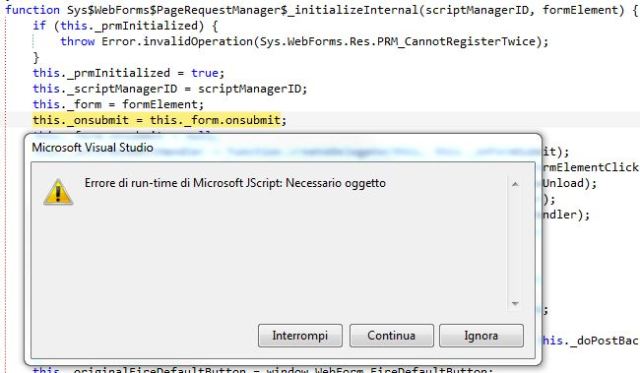This morning, while I was creating a simple ASP.NET page, I have fought a couple of hours versus a GridView that apparently worked in strange ways.
Problem Description
The problem I encountered seemed to be the wrong setting of the property “ID” of the Client-side controls. Generally, the ASP.NET engine (prior to version 4.0) takes fully charged to change the ID to avoid duplication, so that they are always unique. Particularly in the case of a GridView fact, for a control that we insert with ID = “txtSelectedValue”, and that is repeated for each row of the grid, will have a ClientID like this:


